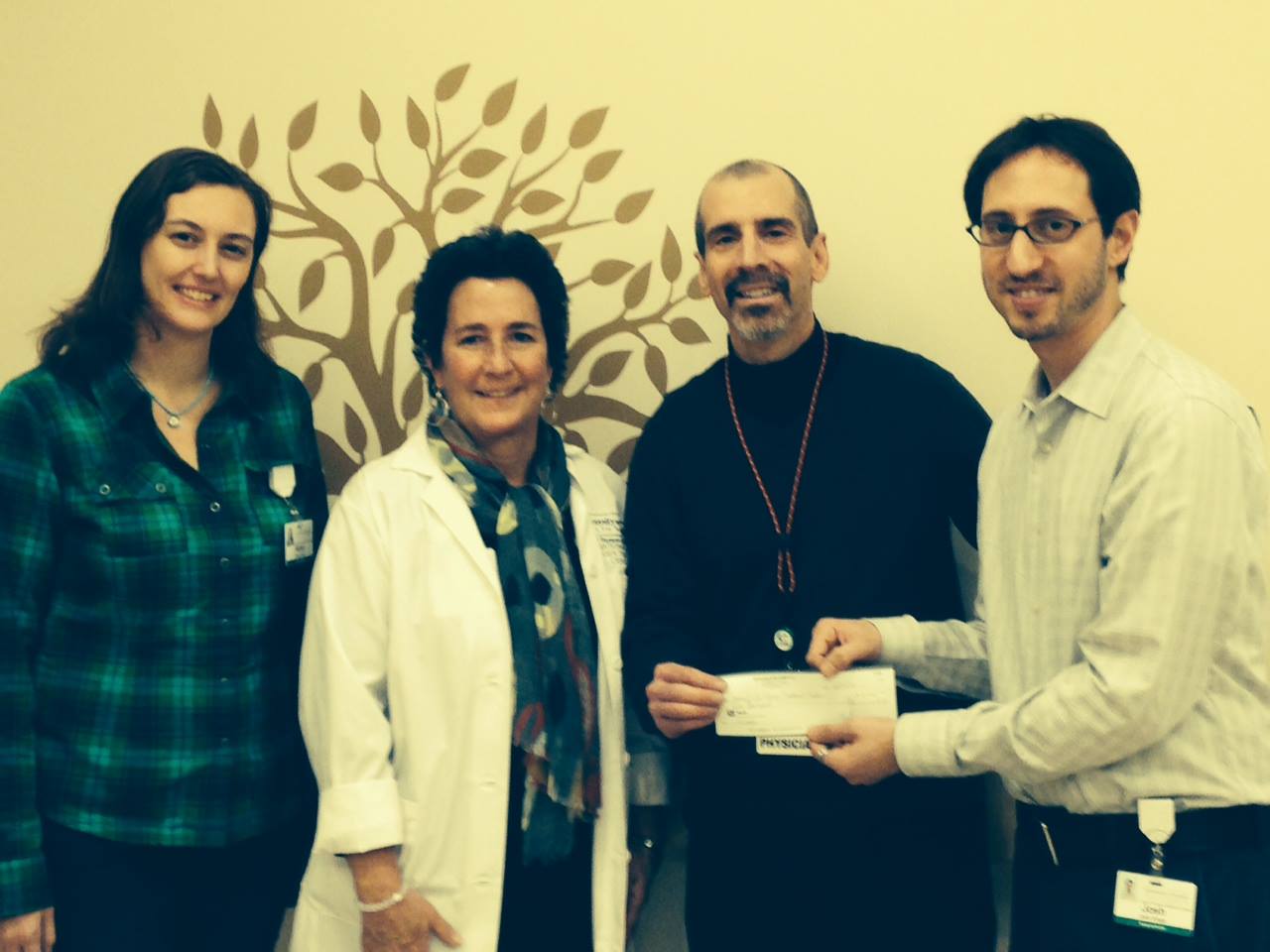(photo shows providers at National Life Cancer Treatment Center of UVM Health Network Central Vermont Medical Center, working together and fundraising to expand the acupuncture program)
Those of you who’ve been given the diagnosis of cancer know the anxiety that fills you when realizing that your body is threatened. Depending on your nature, you may become overwhelmed with fear or you may stay focused on the needed course of action. You may get online and begin researching more about the cancer and anything that may be helpful. Cancer is one of the most studied topics in health care, so there is an incredible amount of helpful experience and information to read.
Integrative Cancer Care
As an acupuncturist, I spend one day a week at the National Life Cancer Treatment Center of CVMC in Berlin, helping manage the side effects of surgery, chemotherapy, and radiation. If you’ve been there, you know why I feel honored to be part of such an effective and caring team of providers. In central Vermont and across our country, integrative oncology is becoming more and more practiced at cancer centers. Integrative oncology is an evolving, evidence-based approach to cancer care using complementary therapies in coordination with standard medical treatment. Such therapies include acupuncture, nutrition, touch therapies like massage, mind-body approaches like meditation, and fitness, amongst others. Some of the major cancer centers in our country such as Dana-Farber in Boston, Memorial Sloan Kettering in New York, and MD Anderson in Houston have been using an integrative approach for years. There has been a significant amount of research done at these centers to help make cancer treatment more effective with limited side effects.
Managing Side Effects
Our cancer center offers acupuncture, massage, and reiki to all of the center’s patients without a fee. The goal in working together is to enhance efficacy, prevent or reduce symptoms, and alleviate distress and suffering. Some of the issues that I’ve seen relieved using acupuncture at our integrative oncology center have been the result of surgery or from the use of chemotherapy or radiation therapy. These include:
Pain
Depression
Neuropathy
Dry Mouth
Nausea and vomiting
Hot flashes
Fatigue
Constipation or diarrhea
Anxiety
Low white or red blood cell counts
A common side effect that my patients experience is peripheral neuropathy due to chemotherapy. This is pain, numbness, and tingling in the hands and feet, often a side effect from breast cancer treatment. I have found that the sooner we begin acupuncture during their treatment, the milder this symptom presents and the quicker it goes away. If you, or someone you care about, are undergoing cancer treatment, please let them know that an integrative cancer care approach can help avoid these potential side effects.
A National Trend
Aside from use in integrative cancer care, there is a national trend toward using complementary therapies for our health needs. Doctors are attaining fellowships in integrative medicine, where these various treatment options are highly valued, researched, and regularly recommended to patients. From the 2007 National Health Interview Survey, in the United States approximately 38 percent of adults and approximately 12 percent of children were using some form of complementary medicine (shown in the figure here; note CAM means “Complementary and Alternative Medicine”). These numbers have only increased over the past seven years. With a growing body of evidence showing the effectiveness of acupuncture and other complementary forms of medicine, consider the various options when approaching such a health challenge as cancer, other chronic or acute illness.
Communication = Better Care
If you find yourself in this position, encourage your physician to communicate with the other providers you are seeing. I find that keeping communication, for example, between the primary care provider, the specialist, the acupuncturist, the mental health counselor, and the patient creates a more effective treatment outcome. Taking care of yourself may require you to build a team of trusted providers, along with the support of your family and friends.






